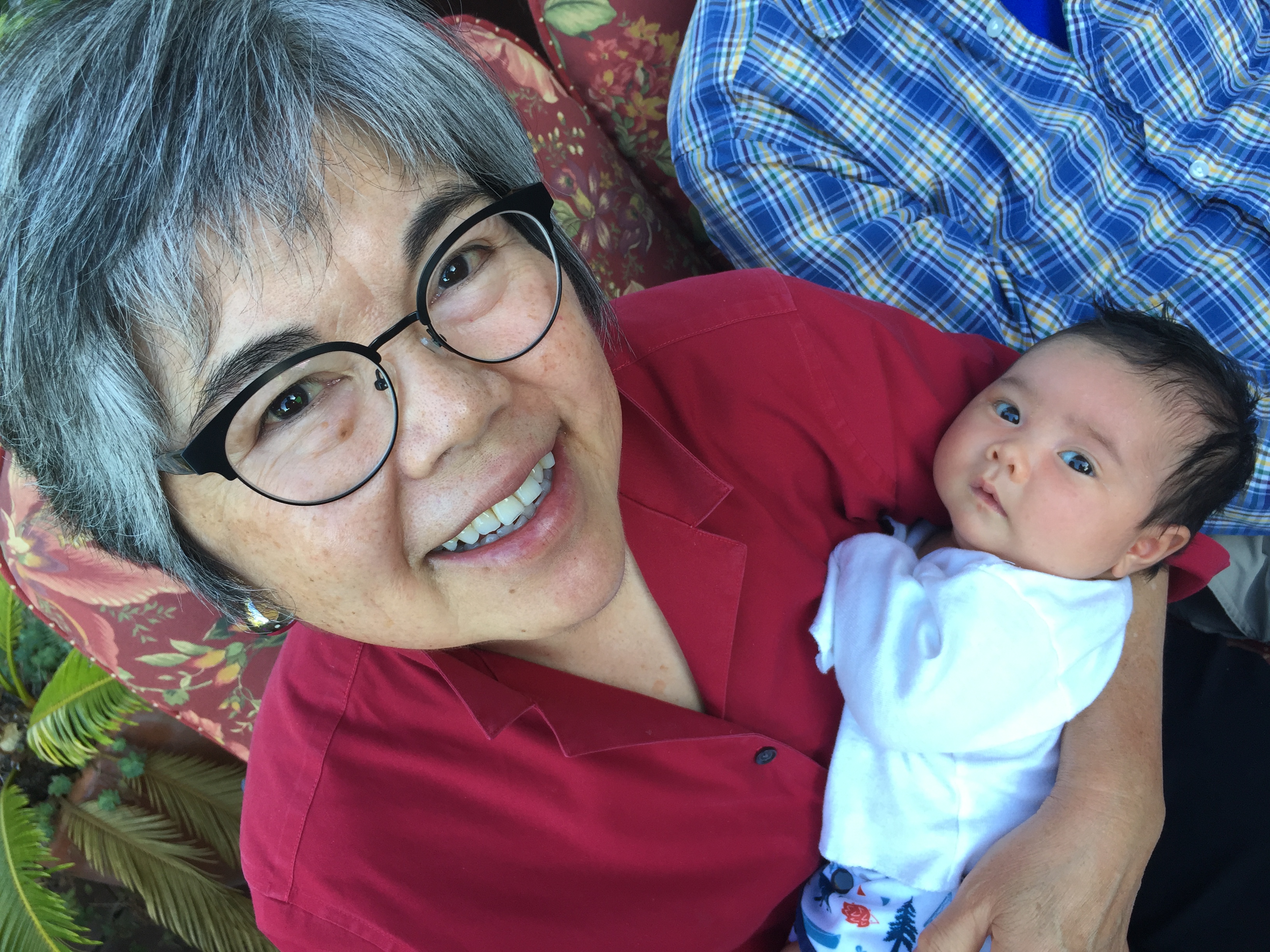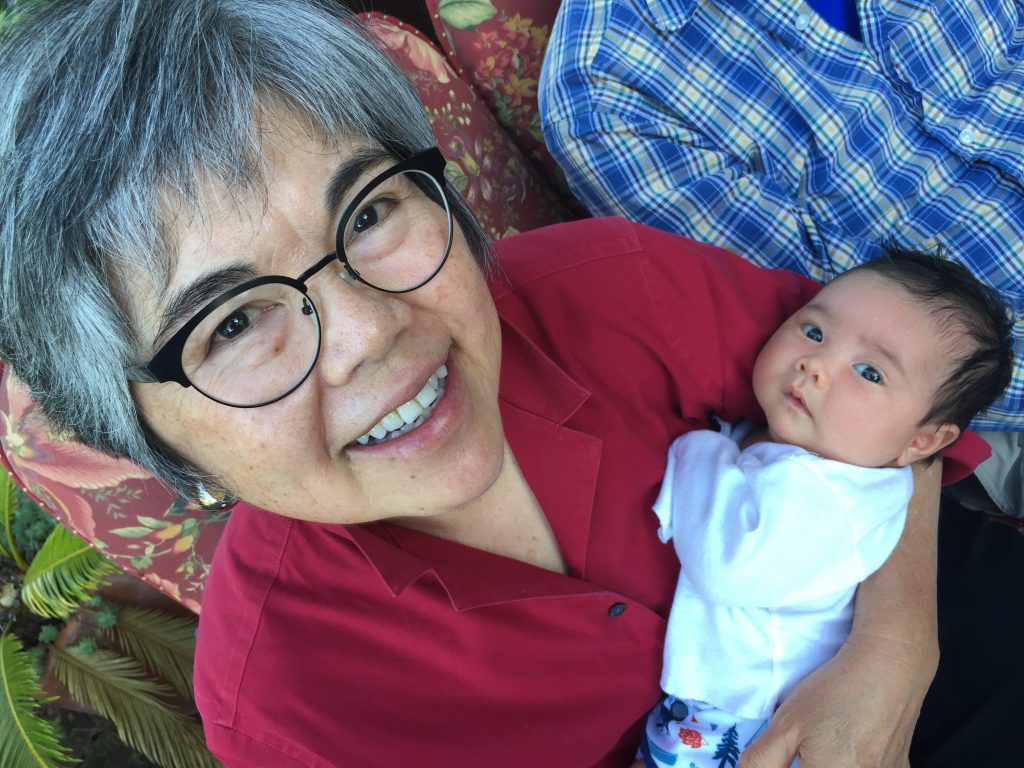Parkinson’s Foundation Promotes Better Research and Care Initiative for Women

Parkinson's patient and advocate Ann Boylan with granddaughter Waverly. (Photo courtesy of the Parkinson's Foundation)
An initiative led by the Parkinson’s Foundation has culminated with a report that aims to make sure women in the U.S. receive the same attention as men in studies and treatments for the physical and mental effects of Parkinson’s disease (PD).
The landmark 56-page report — “Women and Parkinson’s: Closing the Gender Gap in Research and Care, A patient-centered agenda for change”— came out in late March. It follows two years of information-gathering by almost 500 women with Parkinson’s as well as healthcare professionals around the country.
Ann Boylan, a patient who took part in the effort, remembers clearly what one woman living with PD told her.
“How do I get my family to take me seriously?” Boylan quoted the woman as saying. “They don’t believe I have Parkinson’s.”
The reason, Boylan said, is that despite her illness, the woman continued caring for her family as usual because that’s what they expected of her.
Cultural expectations that women remain caregivers regardless of their own health problems is one of the many ways in which female patients are affected differently than males.
“Women with PD experience different symptoms, medical side effects, challenges with access to healthcare delivery and a lack of social support compared to men with PD,” Veronica Todaro, executive vice president and chief operating officer of the Parkinson’s Foundation, wrote in the report’s foreword. “Despite these differences, there has not been a concerted national effort to more fully understand how sex and gender impact treatment, care and, most importantly, quality of life.”
Join the Parkinson’s forums: an online community for people with Parkinson’s Disease and their caregivers.
The report aims to change that with an agenda that includes three primary goals and a number of priorities for each one.
The agenda’s main goals
The first goal is expanding and improving research to better understand how this disease affects women. Priorities include recruiting women representing a variety of demographic factors, Parkinson’s stage and onset, as well as focusing on issues unique to women, such as sex hormones and menopause.
Improving healthcare access and delivery for female patients is a second goal. Priorities include recognizing that women with PD may require different services than men, or different administration of similar services, and promoting shared decision-making between women and their medical professionals.
The third goal is helping women with Parkinson’s and their care teams develop strategies focused on their unique experiences. Priorities include providing women tools and resources to self-manage their disease starting at diagnosis, providing access to women’s-only peer-to-peer services, and increasing public awareness about PD.
Groundwork for the agenda started in 2013, when many female patients surveyed by the Parkinson’s Foundation reported that their needs were not being met, said Megan Feeney, the foundation’s senior manager for community engagement.
That led to the birth of the Women and PD Initiative in 2015, and, two years later, the Women and PD Teams to Advance Learning and Knowledge (Women and PD TALK). The latter hosted 10 regional forums and one national conference on women’s experiences and needs. The Patient-Centered Outcomes Research Institute provided a $250,000 grant for the project.
While men are 1.5 times more likely to develop Parkinson’s than are women, women usually live longer and report more severe symptoms, Feeney said. These include gait and movement-freezing problems, depression, anxiety, and constipation. They are also more likely to experience more pain and have dementia. However, much of this information is anecdotal since research has generally focused on men, she said.
Women may also be reluctant to discuss issues of a sensitive nature – mental health, urinary problems or difficulties with intimacy, for example – if their doctors aren’t bringing them up, Feeney added.
“We want better outcomes for women in the future, but we want better resources for women now,” she said.
Self-care a priority
To this end, women with PD need to learn about gender differences so they can advocate for themselves and educate their health providers, Feeney said. Information is available on the Parkinson’s Foundation’s website and in a series of educational slides developed for use at community presentations.
Women should also strive for a care team they feel comfortable with and ask questions at their appointments. They should play an active role in determining their own treatment so they can prioritize aspects of their lives that most define their identities, Feeney said.
She cites as examples a woman who wanted to stroll on the beach with friends walking on sand with the aid of her physical therapist, and another who loved singing at church practicing with a speech pathologist.
Meanwhile, family members need to make sure women with PD aren’t sacrificing their own health to take care of others, Feeney said, adding that it’s everyone’s responsibility to help them maintain a quality of life. She suggested, for example, that women are more likely than men to go alone to their health appointments, and family members should accompany them.
While the agenda can serve as a map for female Parkinson’s patients, their families, caregivers, and researchers need to follow, and Boylan said it’s up to the women to make sure they do.
“The huge healthcare machinery is not going to move” without women advocating, she said. “Even if you may begin to look a little like a troublemaker … do it.”
Women shouldn’t feel guilty about asserting themselves regarding their healthcare because they’re entitled to it. Equality in health treatment is part of the larger women’s movement, Boylan said.
“Self-care has to come first,” she said. “Love thyself and then you can help others. … Self-love is not selfish. It’s self-preservation. It powers the good you’re going to do next.”







